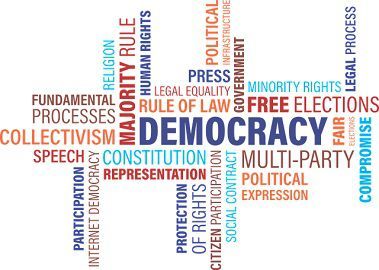From the point of view of the formation of the government, democracy is of two kinds, namely, Pure or direct democracy and Representative or indirect democracy.
Direct DemocracyIn a direct democracy, the adult population, remaining present in the form of
assembly, take part in decision-making and exercise of power. It does not
delegate its powers to any other person or representatives. Ancient Greek
city-states had direct democracy. In modern times, only some cantons of
Switzerland have such direct popular assembly, known as Landsgemiende.
Still some devices of direct democracy are available:
(1)
Referendum, meaning referring some important issue, policy or decision to the
people, such as, amendment of the constitution. Rendering opinion by the people
can be (i) compulsory, or (ii) voluntary.
(2)
Initiative implying that the people or a certain portion of the citizenry can
take initiative to get certain law of its choice passed. They can send the
proposal to the legislature which may enact it on usual lines.
(3)
Recall. By this device, the people of a constituency, by their majority can
ask the legislature to send back their representative, and, thus, cancel his
membership. Many states of the United States empower their people to do so.
(4)
Plebiscite indicates that the people are directly consulted on questions of
political importance.











0 Comments